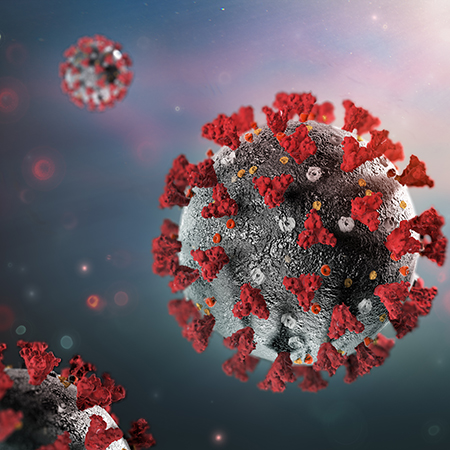A reorganisation of health and social care staff and facilities is one recommendation of a new report from the Academy of Medical Sciences to prepare for a second peak of COVID-19. This would focus on maintaining COVID-19 and COVID-19-free zones, as well as ensuring there is adequate PPE, testing and system-wide infection-control measures to minimise transmission in hospitals and care homes.
The report, ‘Preparing for a challenging winter 2020/21’, published this week (July 14) warns that the UK must prepare now for a potential new wave of coronavirus infections this winter that could be more serious than the first.
Combined with the disruption already created in the health service by COVID-19, a backlog of patients needing NHS assessment and treatment, and the possibility of a flu epidemic, a second peak poses a serious risk to health in the UK.
These new pressures are in addition to the challenge winter usually presents to the NHS, when other infectious diseases are more common and conditions such as asthma, heart attack, chronic obstructive pulmonary disease and stroke tend to worsen.
The report stresses that ‘intense preparation’ is urgently needed throughout the rest of July and August to reduce the risk of the health service being overwhelmed and to save lives this winter.
Other recommendations made in the report include: minimising transmission of coronavirus in the community with a public information campaign; increasing capacity of the test, trace and isolate programme; establishing a comprehensive, near real-time, population-wide surveillance system; and making a concerted effort to get people at risk and health and care workers vaccinated for flu.
Research suggests that COVID-19 is more likely to spread in winter with people spending more time indoors and the virus able to survive longer in colder, darker winter conditions.
The report notes there is a high degree of uncertainty about how the COVID-19 epidemic will evolve in the UK over the coming months, but suggests a ‘reasonable worst-case scenario’ to prepare for is one where the average number of people that one infected person will pass the virus on to (Rt value) rises to 1.7 from September 2020 onwards.
Modelling of this scenario suggests there would be a peak in hospital admissions and deaths in January and February 2021 similar to or worse than the first wave in spring 2020, coinciding with a period of peak demand on the NHS. It estimates the number of COVID-19-related hospital deaths (excluding care homes) between September 2020 and June 2021 could be as high as 119,900. However, these figures do not take account of the fact that Government would act to reduce the transmission rate, or the recent results from a trial to treat patients in intensive care with the steroid dexamethasone, which could substantially reduce death rates.
Professor Stephen Holgate FMedSci, a respiratory specialist from University Hospital Southampton NHS Foundation Trust, who chaired the report, says: “This is not a prediction, but it is a possibility. The modelling suggests that deaths could be higher with a new wave of COVID-19 this winter, but the risk of this happening could be reduced if we take action immediately.”
“With relatively low numbers of COVID-19 cases at the moment, this is a critical window of opportunity to help us prepare for the worst that winter can throw at us.”
An advisory group of 37 experts were rapidly assembled to create the report following a request by the Government’s Chief Scientific Advisor. The report was guided by a patient and carer reference group that provided information and advice on the key issues for those who would be most affected by a bad winter.
The report highlights the backlog of patient needs created by halting non-urgent appointments and procedures during the first wave of the COVID-19 pandemic, with an overall waiting list that could stand at ten million by the end of this year.
It also explains that the NHS is still severely disrupted by the pandemic, with staff and facilities redeployed to cope with the first wave, and notes that measures put in place to prevent the transmission of COVID-19 also reduced NHS capacity. The extra pressures of winter will mean a similar reorganisation will not be possible.
Professor Dame Anne Johnson FMedSci was on the expert group for the project and is the Academy of Medical Sciences’ Vice President (International), she says: “Every winter we see an increase in the number of people admitted to hospital and in the number of people dying in the UK. This is due to a combination of seasonal infections such as flu, and the effects of colder weather, for example, on heart and lung conditions.
“This winter we have to factor in the likelihood of another wave of coronavirus infections and the ongoing impacts of the first wave. We have to be prepared that we might also experience a flu epidemic this year.
“Faced with these potential challenges, and after an already tough year, it would be easy to feel hopeless and powerless. But this report shows that we can act now to change things for the better. We need to minimise coronavirus and flu transmission everywhere, and especially in hospitals and care homes. We need to get our health and social care, and the track, trace and isolate programme ready for winter. This can be done, but it must be done now.”









